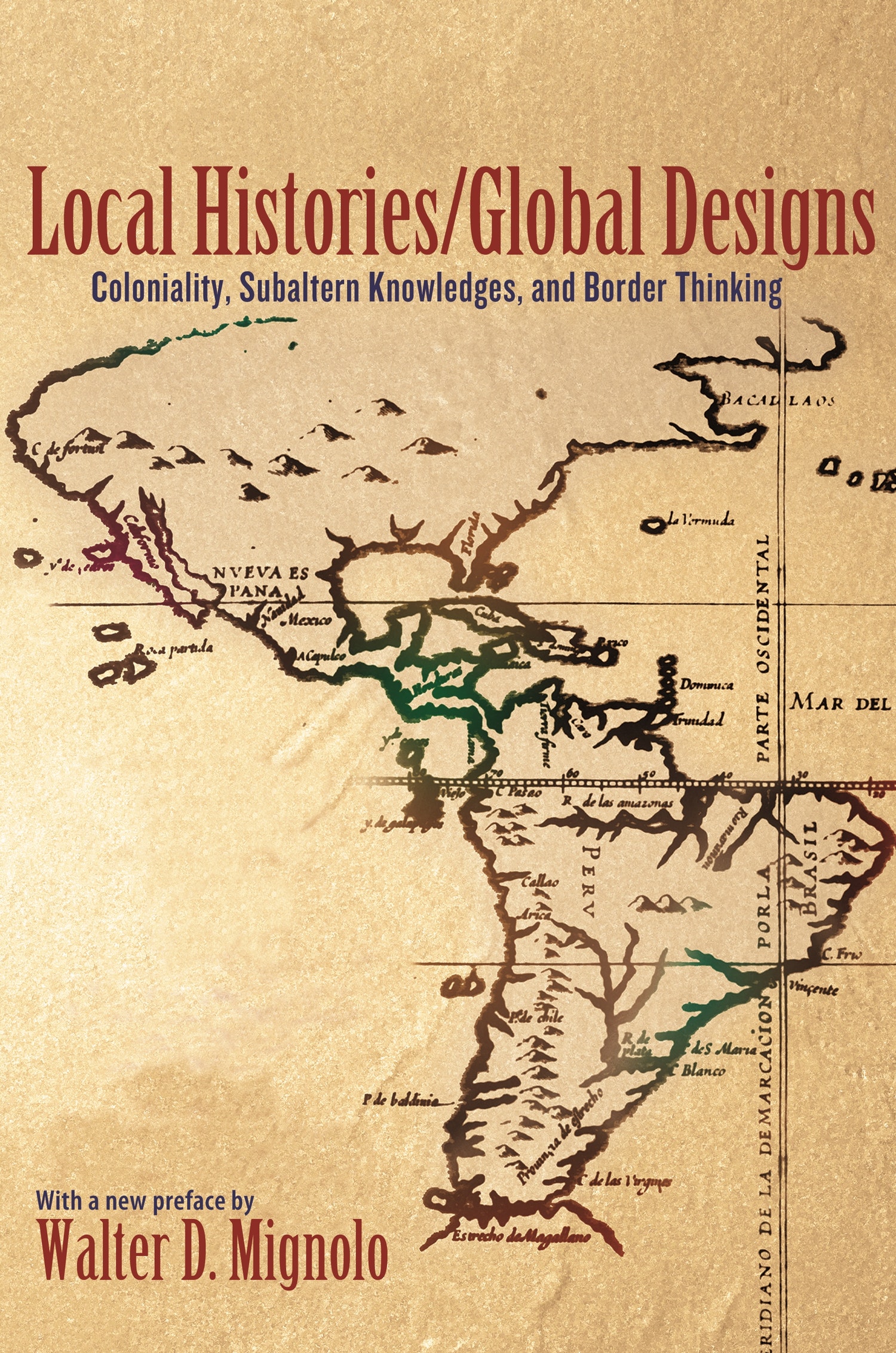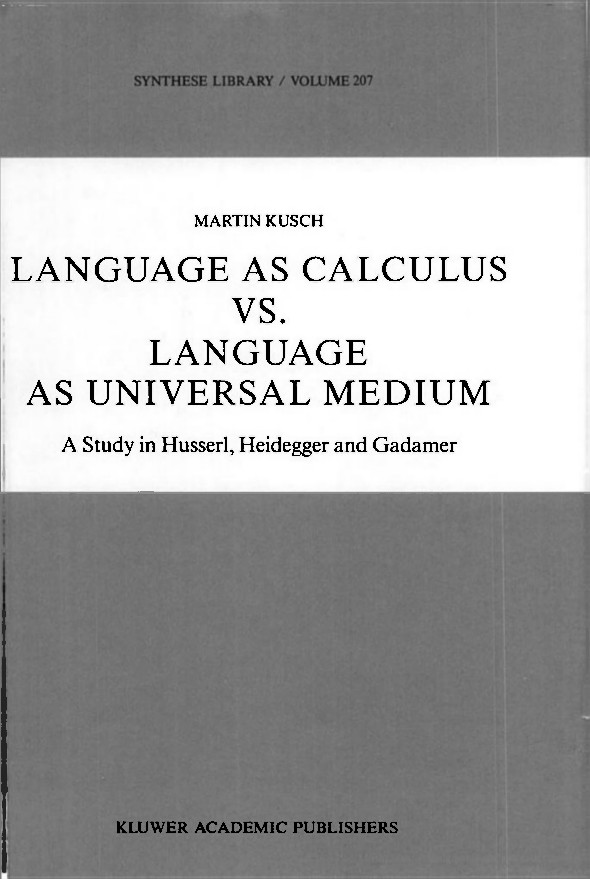Walter D. Mignolo: Local Histories/Global Designs: Coloniality, Subaltern Knowledges, and Border Thinking (1999)
Filed under book | Tags: · anthropology, borders, colonialism, decolonization, epistemology, gender, globalisation, hermeneutics, history, knowledge, language, latin america, modernity, occidentalism, pluriversality, postcolonialism, subaltern studies, theory, zapatistas

“This book is an extended argument on the “coloniality” of power by one of the most innovative scholars of Latin American studies. In a shrinking world where sharp dichotomies, such as East/West and developing/developed, blur and shift, Walter Mignolo points to the inadequacy of current practice in the social sciences and area studies. He introduces the crucial notion of “colonial difference” into study of the modern colonial world. He also traces the emergence of new forms of knowledge, which he calls “border thinking.”
Further, he expands the horizons of those debates already under way in postcolonial studies of Asia and Africa by employing the terms and concerns of New World scholarship. His concept of “border gnosis,” or what is known from the perspective of an empire’s borderlands, counters the tendency of occidentalist perspectives to dominate, and thus limit, understanding.
The book is divided into three parts: the first chapter deals with epistemology and postcoloniality; the next three chapters deal with the geopolitics of knowledge; the last three deal with the languages and cultures of scholarship. Here the author reintroduces the analysis of civilization from the perspective of globalization and argues that, rather than one “civilizing” process dominated by the West, the continually emerging subaltern voices break down the dichotomies characteristic of any cultural imperialism. By underscoring the fractures between globalization and mundialización, Mignolo shows the locations of emerging border epistemologies, and of post-occidental reason.”
Publisher Princeton University Press, 1999
Princeton Studies in Culture/Power/History series
ISBN 0691001405, 9780691001401
xix+371 pages
Interview with author (L. Elena Delgado and Rolando J. Romero, Discourse, 2000)
Author on pluriversality (2013)
Review: Serge Gruzinski (Annales, 2002, FR).
Commentary: Linda Martín Alcoff (CR, 2007).
PDF (17 MB)
Comment (0)Martin Kusch: Language as Calculus vs. Language as Universal Medium: A Study in Husserl, Heidegger and Gadamer (1989)
Filed under book | Tags: · hermeneutics, language, mathematics, phenomenology, philosophy

The book applies a novel interpretational framework in philosophy of language to the study of Husserl, Heidegger and Gadamer, emphasizing the fundamental opposition in Husserl’s and Heidegger’s views concerning the relations between language and the world. The author shows how Husserl’s idea of language as a reinterpretable sign-system informs his whole philosophical project from the early work on the philosophy of mathematics to the late studies on the life-world.
The book also explains Heidegger’s central reasons for rejecting Husserl’s conception of language, the central tenets of Heidegger’s early as well as his late “thought” being interpreted as so many corollaries of this rejection. The book concludes with a discussion of Gadamer’s hermeneutics which is analyzed as an attempt to avoid the extremities of both Husserl and Heidegger. The study also elaborates on similarities and differences between these thinkers and classicists in the analytical tradition such as Frege and Wittgenstein.
Publisher Kluwer Academic Publishers, Dordrecht / Boston / London, 1989
Synthese Library, Volume 207
ISBN 0792303334, 9780792303336
362 pages
Liu, Mowitt, Pepper, Spicer (eds.): The Dreams of Interpretation: A Century Down the Royal Road (2007)
Filed under book | Tags: · desire, dreams, hermeneutics, psychoanalysis, psychology

Rethinking the importance of Sigmund Freud’s landmark book The Interpretation of Dreams a century after its publication in 1900, this work brings together psychoanalysts, philosophers, cultural theorists, film and visual theorists, and literary critics from several continents in a compilation of the best clinical and theoretical work being done in psychoanalysis today. It is unique in convening both theory and practice in productive dialogue, reflecting on the encounter between psychoanalysis and the tradition of hermeneutics. Collectively the essays argue that Freud’s legacy has shaped the way we think about not only psychology and the nature of the self but also our understanding of politics, culture, and even thought itself.
Contributors: Willy Apollon, Gifric; Karyn Ball, U of Alberta, Edmonton; Raymond Bellour, Centre National de la Recherche Scientifique; Patricia Gherovici, Philadelphia Lacan Study Group and Seminar; Judith Feher-Gurewich, New York U; Jonathan Kahana, New York U; A. Kiarina Kordela, Macalester College; Pablo Kovalovsky, Clinica de Borde; Jean Laplanche, U of Lausanne; Laura Marcus, U of Sussex; Andrew McNamara, Queensland U of Technology; Claire Nahon; Yun Peng, U of Minnesota; Gerard Pommier, Nantes U; Jean-Michel Rabaté, U of Pennsylvania; Laurence A. Rickels, U of California, Santa Barbara; Avital Ronell, New York U; Elke Siegel, Yale U; Rei Terada, U of California, Irvine; Klaus Theweleit, U of Freiburg-im-Breisgau; Paul Verhaege, U of Ghent, Belgium; Silke-Maria Weineck, U of Michigan.
Edited by Catherine Liu, John Mowitt, Thomas Pepper, and Jakki Spicer
Publisher University of Minnesota Press, 2007
Cultural Critique Books series
ISBN 0816647992, 9780816647996
379 pages
review (Louis Rose, Medical History)
Comment (0)
